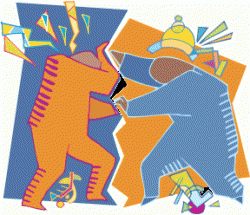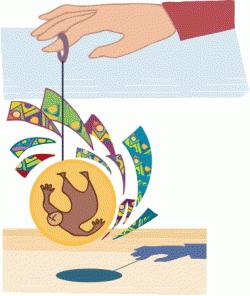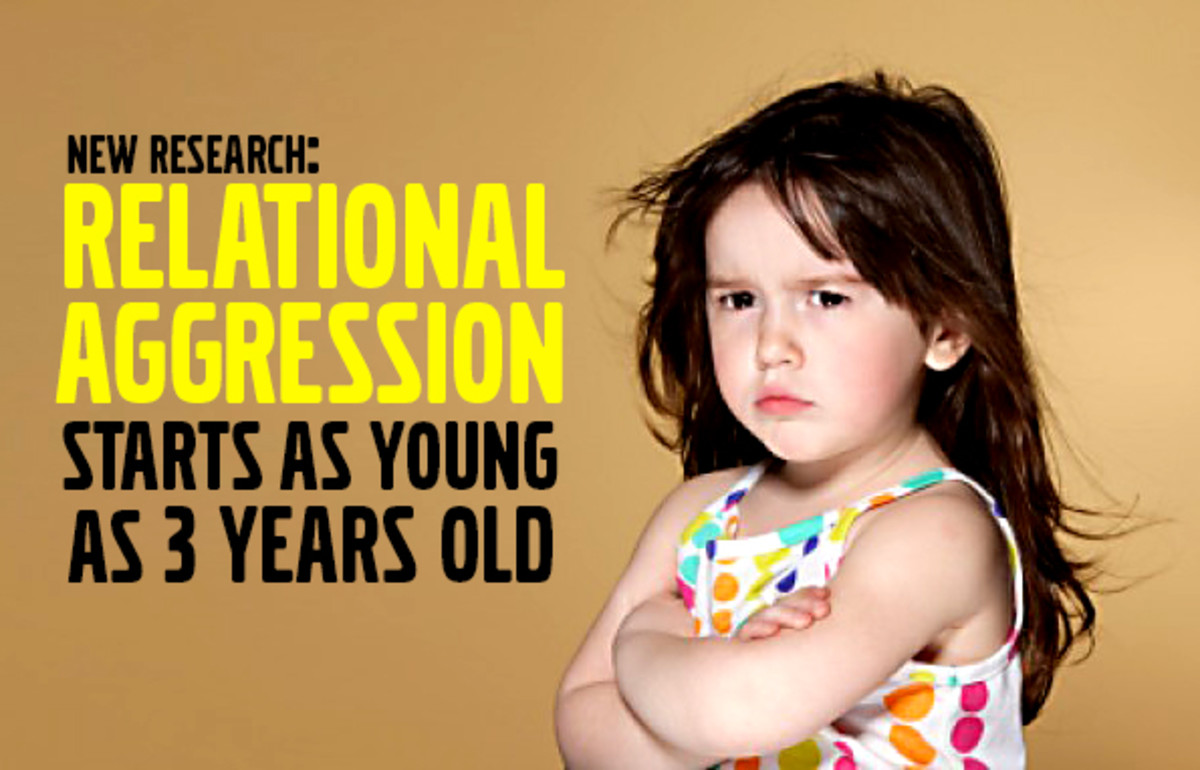Dealing With Difficult People

Assertiveness and People Handling Skills (Especially for Shy People)
The topic of "difficult people" covers a lot of ground: it can range from dealing with the occasional complainer to the manipulative backstabber who tries to get your job (or simply enjoys seeing you lose yours).
Shy people often have a particular problem in dealing with difficult people. Their lack of an outgoing, self-confident manner may be seen as weakness and may actually invite difficult behavior from others.
Moreover, according to research by Dr. Phillip G. Zimbardo, approximately 40% of the population labels themselves as "shy," and learning assertiveness skills is a particularly pressing issue for such people.

Steps to Dealing with Difficult People
Dealing effectively with other people is one of the most critical abilities of daily living. It affects one's level of success at home, in school, and on-the-job. Yet we are woefully inadequate when it comes to knowing the correct steps dealing with difficult people. Because of the lack of ability in this area, many of us find neurotic or overly-critically people to be serious problems.
Robert Conklin, an author and researcher in the field of human relations, once conducted a rather interesting experiment. He asked 1000 people "Do you feel you don't get along with others?" He almost never found anybody who said "yes." Tellingly, however, when he asked the same number of people to list their three biggest pet peeves--you guessed it: 998 named gripes that were caused by other people!
Admittedly, any of us can be difficult in the eyes of others. However, truly difficult people don't care about maintaining good relations with everybody. In any event, learning good relating skills as well as steps dealing with difficult people will help to keep us from being seen as difficult in the eyes of others, as well as to deal with those who behave in difficult ways towards us.
One of the primary tools for dealing effectively with others is called assertiveness. This simply means standing up for your own rights in a positive way without hesitating, making excuses or apologizing.
Shy people may have a particular need to learn assertiveness skills. Their quiet and seemingly timid manner is often seen as a sign of weakness by manipulative people.
In a survey of 1000 people,
almost no one said they didn't get along with others...but 998 named pet peeves that were caused by other people!

Assertiveness Without Guilt
Assertiveness is one of the most important tools for dealing effectively with others. But what is it?
Assertiveness is simply standing up for yourself, speaking up for your rights, and effectively expressing your wishes, ideas and concerns.
Assertiveness without guilt is the right of every person who is asked to do something he he or she doesn't want to do, or who wants to make reasonable requests of others.
There are two types of assertiveness demanding situations. The first is dealing effectively with people who ask you to do something that you just don't feel like doing. There are unfortunately people who will take advantage of others' good natures to try to elicit excessive favors. There are those who seem to constantly and excessively need somebody else's help.
The second is when people behave badly towards you, are rude, try to put you down, insult you or treat you in a patronizing fashion. In order to retain your self-respect and achieve success, you need to learn the steps dealing with difficult people and effective responses to these various kinds of unreasonable behaviors.
Consider the example of someone who is interrupted by a telemarketer. "Will you buy this," "Will you contribute to that?" Perhaps the unassertive person will even agree to something they don't want just to get it over with. There might even be a little guilt. After all, the caller is just doing his or her job.
The key word, however, is "unreasonable."
There is nothing wrong with doing favors for someone if you want to. But if you feel you must in order to be "likable" or "a nice guy" then something is wrong.
Gary Emery, a clinical professor at UCLA, once stated "We all want people to think were nice, but millions of people carry it too far. Every moment of their days is spent being nice -- and the damage it does them is enormous!"
Some experts attribute being "too nice" to harmful frustration, anxiety, anger and depression.
There are those who always seem to desperately need somebody else's help, but assertiveness can be a particular problem for shy people, who may think that doing favors for others will make up for their lack of extroversion in getting people to like them.
Those who are unassertive often suffer from an excess of empathy. While empathy is normally an admirable trait, too much of it, as with anything, can be harmful. And some people, rather than admiring this trait, will look for ways to take advantage of it! If you feel resentful about a request after you agree to it, this is generally a sign that you were asked to do something unreasonable.
The flip side of assertiveness is the inability to make reasonable requests of others, something that can be even more difficult than turning down other people's unreasonable requests of favors from you.
Remember that you have the right to look out for your own interests. This is the key to assertiveness without guilt.
Remember
that you have the right to look out for your own interests.

How Is Assertiveness Different From Aggression?
We hear a lot about assertiveness, but how is assertiveness different from aggression? The two behaviors are really almost polar opposites. Aggressiveness may make people dislike you, but assertiveness often makes people like and respect you more!
In fact, assertiveness is really about gaining the goodwill and liking of others. After all, if someone likes and respects you, they will tend to be more mindful of your needs and desires than they would be otherwise. Therefore, by establishing friendly and cordial relations with others, you will have already won half the battle before you begin: when you do need to assert yourself, it will be easier to remain on good terms with others.
Shy people have a particular need to learn assertiveness skills. Since shy people often seem aloof, unfriendly, or uninteresting to others, they may have a harder time quickly gaining their respect and goodwill. People may not be as inclined to keep their needs and concerns in consideration as they would with outgoing, extroverted types.
In addition, since shy people are more likely to be seen as somewhat timid or even meek, people who are truly aggressive may be more inclined to try to take or gain the advantage over them than they would with those who seem more self-assured.
We could say that two important aspects for assertiveness are cordiality and cheerfulness. This is the answer to the question "how is assertiveness different from aggression?"
The attributes of cordiality and cheerfulness are disarming: people are more likely to comply with the wishes of those who ask something of them in a genuinely friendly way. People who seem cheerful and friendly are also more easily able to turn down a request for a favor without arousing resentment.
Assertiveness does not mean displaying a gruff, snarling demeanor. That's aggressiveness. Assertiveness means standing up for your interests calmly and effectively, in a way that is most likely to elicit the desired behaviors from others.
People respect those who stand up for their rights in a confident, friendly way. So, being cheerfully assertive actually means being more likely to maintain the goodwill of others. Assertiveness means saving face, while allowing others to save face as well.
In short, the answer to "How is assertiveness different from aggression?" is simple. Assertiveness means that everyone wins and nobody loses. Other people respect you more and you respect yourself more.
Assertiveness
means saving face, while allowing others to save face as well.

Dealing with Negative Criticism
Sometimes criticism is well-intended and helpful, but sometimes it is mean-spirited and manipulative
We all have to deal with difficult people from time to time. Perhaps it is a noisy neighbor or a bossy coworker. Fortunately, we can draw from the wisdom of the ages to help us gain inspiration. With this in mind, here are some quotes on how to deal with difficult people.
Dealing with negative criticism is the hardest. As Sydney B. Simon once wrote in "Negative Criticism," "I defy anyone reading this book to tell me that she or he has ever felt indifferent, let alone uplifted, enriched, cheered up, or enhanced when put on the receiving end of a blast of criticism."
Another of Mr. Simon's quotes: "Thousands upon thousands of us [fail] to recognize that the knives of negative criticism which people stick in us are just as sharp and deadly as those made of steel and borne by assassins... our society has somehow conditioned us to accept the notion that criticism of all sorts is bound to be good for us. That it will make us more mature. That one of the marks of being a grown up woman or man is the ability to absorb all sorts of critical jabs, barbs, and thrusts. That the more it hurts the better for us."
Mr. Simon is exactly right.
It's true that many people refuse to listen to completely justified criticism. However, we are being drowned by the "self-help" rules that we must always listen to criticism because it is a "gift" from people who care about us!
Perhaps sometimes, but not ALWAYS!
The people who are so quick to point out the importance of listening to constructive criticism forget the flipside; that negative people can use negative and destructive criticism as a powerful weapon to break us down!
J. Carter, author of the book "Nasty People" called such difficult people "invalidators." He wrote: "It's hard to recognize an invalidator, because a truly good one can bypass the scrutiny of your logical mind, and you find yourself feeling bad without knowing why.... the invalidator actually feels inferior to some other person, so he or she tries to make the other person feel small. Thus, the invalidator can control the victim.
George Zgourides, author of "Don't Let Them Psych You Out!" defined the constant critic thusly: "This opponent is fond of pointing out your imperfections... everything you do is bad... and the criticizer feels compelled to tell you all about it, even if you don't want to hear it."
I cover much more about this in my complete overcoming shyness system. But for now, please remember that criticism is not always your friend!
We are being drowned
by the "self-help" rules that we must always listen to criticism because it is a "gift" from people who care about us!
Books by Jay Carter - Books dealing with the topic of nasty people in various situations
Jay Carter has written a shelf load of books on the subject of nasty people, ranging from nasty bosses, nasty women and nasty men, and just plain old nasty people in general.
"Negative Criticism" - Sidney B. Simon
Even groundbreaking books may go out of print eventually, but their message to us lives on. Negative Criticism, one of the books cited above, is out of print , but you can still buy it used from Amazon
"Don't Let Them Psych You Out!" - George Zgourides, Psy.D.
Another book that is cited in the above article, "Don't Let Them Psych You Out!" contains many real-life examples off how to deal with difficult and sometimes downright nasty people, and has great advice that will help you in most situations that demand assertiveness. Buy new or used from Amazon.

Don't Let Shyness Blind You to the Dangers Of False Friends
There was a story recently in the news of a young Harvard Law student who got in big trouble! She was having an e-mail discussion with some "friends" and she made the dire mistake of confiding a politically incorrect opinion or two. Unsurprisingly (or I wouldn't be writing about it) the e-mail came back to haunt her.
It turns out the student's politically incorrect statements were leaked to a number of blogs, as well as to a political pressure group. Before long, there was a firestorm of controversy and the young law student found that the prestigious job she had been pegged to receive after graduation was in jeopardy!
Obviously, one of her "friends" had leaked her private e-mail In an apparent effort to ruin her. The young law student who thought she could confide with someone in an e-mail was the victim of a false friend.
Ironically, whoever leaked the e-mail and caused all this hurt was never named. The young law student who made the politically incorrect opinions was the only one who was targeted by her school. But perhaps the false friend who leaked this story is the one who should really be ashamed -- releasing private correspondence for the sole purpose of damaging someone's reputation shows spitefulness and a lack of decency and respect for intellectual debate.
Certainly the "leaker" understood how hurtful this action would be. Whatever dispute the young law student had with the informant certainly didn't justify such an action. I think we've all had disputes with others but we, at least most of us, have never wanted to completely destroy another person.
What prompted the informant to cause all this trouble? Was it a simple disagreement? Was it an argument from the past? Was it simple jealousy?
Who knows? But I think it is safe to say that this was never a true friendship to begin with. One could even say that, if anything, it was a "toxic friendship."
Aside from the serious free speech issues that this story highlights, and the importance of never writing in an e-mail what you would not want the whole world to know, we can find another important lesson in this story: some of the people who you think of as friends...just aren't. In fact, someone who you think was a friend can turn out to be a backstabber!
It can happen to any of us--a friendship can go sour--but I think this problem is particularly acute for shy people, because they often have trouble, or at least more trouble, forming friendships in the first place. Not only is it harder for shy people to form close friendships, but they tend to hold on more tightly to the friendships they do have, even when it's obvious they're past the point where they should just "let go."
Just as with many other things, a false friend can be detrimental to your well-being, success, and happiness. In choosing your friends, it is well to be aware of some of the warning signs of a friendship gone bad (or one that was never very good in the first place):
Does your friend get you into trouble? This is a common problem with young people. Many people are led astray by false friendships. People may be pressured by toxic friends to use drugs, get in trouble with the law or even join gangs.
Does your friend pressure you to do things that are wrong? True friends will not ask you to do something that is wrong, harmful or illegal.
Does your friend betray confidences? This is a serious problem. One of the defining qualities of friendship is the ability to share of oneself with another, as well as to keep those confidences. People who can't truly confide in each other probably can't be said to have a close friendship. This is why it really hurts to have a friend who betrays a confidence you shared in the past.
Henry Ford once defined a friend as "He who brings out the best in you." Many people, especially shy people, are so desperate for friendship that they cling to unsatisfying or even destructive relationships. Such people would be far better off devoting their energies to forming new friendships rather than trying to keep one going that has obviously gone sour.
Some of the people
who you think of as friends...just aren't.


















